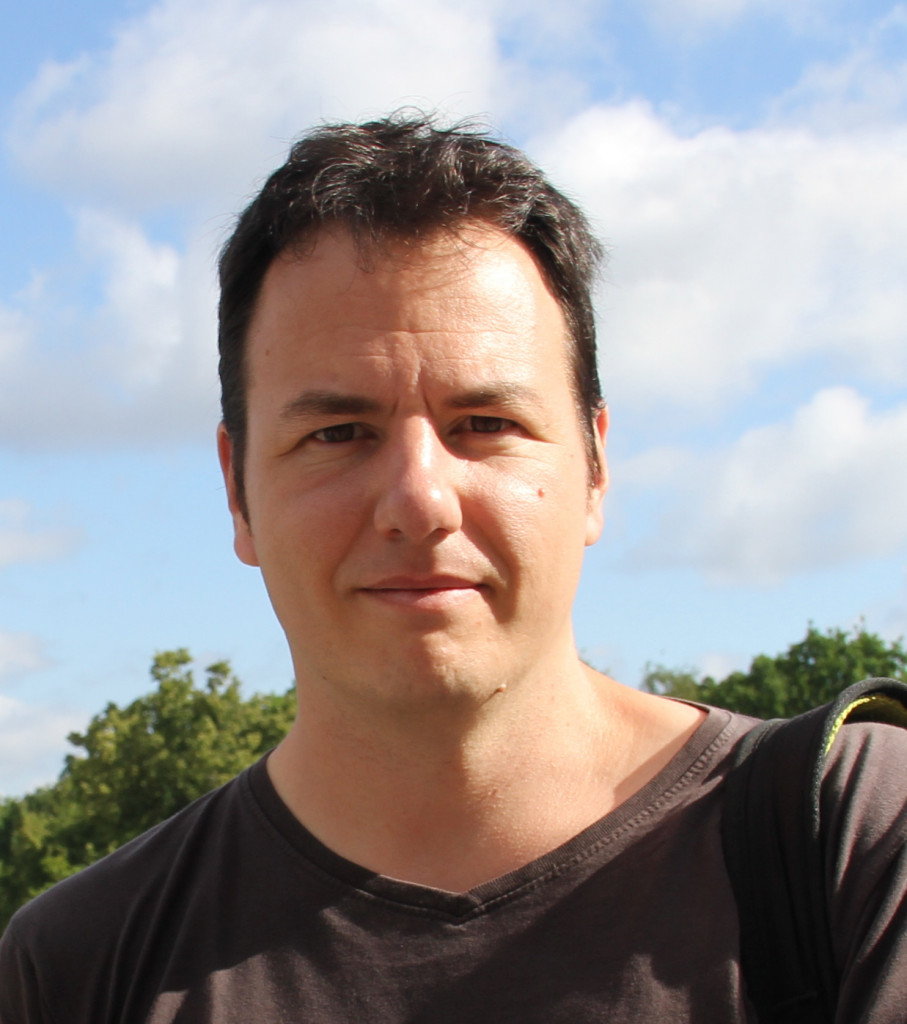Juan Carlos Morales (IEEC-CSIC) awarded Premi Ciutat de Barcelona 2019 in Experimental Sciences and Technology

This discovery challenges conventional theories of planetary formation accepted to date.
Juan Carlos Morales is also one of the eight finalists for the Vanguardia de la Ciencia prize awarded by the newspaper La Vanguardia and the Fundació Catalunya-Pedrera.
A study led by Juan Carlos Morales, researcher from the Institute of Space Studies of Catalonia (IEEC — Institut d’Estudis Espacials de Catalunya) at the Institute of Space Sciences (ICE, CSIC), announced last autumn the discovery of an anomalous planetary system around the red dwarf GJ 3512. Located about 30 light years from Earth, the red dwarf, which has only a tenth of the mass of the Sun, appears to possess at least one – and possibly two – gas giant planets. The study was published in the journal Science on 27 September 2019.
The finding of this giant exoplanet around a small star contrasts with the way scientists think most giant planets are formed. Up to now, it was believed that this type of planet grows slowly as gas falls on a solid core; however, the planet of GJ 3512 most likely formed from the fragmentation of the disk of gas and dust that surrounded the star when it was young. This discovery has caused the astronomical community to rethink existing theories and explore new ones to better understand how planets form.
The detection of the planet was carried out with the CARMENES spectrometer, installed at the 3.5 m diameter telescope of Calar Alto Observatory, in Almería (Spain). The study also used, among others, the IEEC Joan Oró Telescope (TJO) located at the Montsec Astronomical Observatory.
The award Premi Ciutat de Barcelona 2019 in Experimental Sciences and Technology is the culmination of the hard and outstanding work that is being done by the IEEC exoplanet group at ICE (CSIC), in particular, and the CARMENES consortium, in general.
The group is currently led by Ignasi Ribas (IEEC director and researcher at ICE), and is composed of several doctoral students, engineers, and postdoctoral researchers, in addition to having numerous collaborations with research institutions around the world. The team focuses on the preparation and exploitation of several international projects and missions in the field of exoplanets including the European Space Agency's (ESA) CHEOPS, PLATO and ARIEL missions, as well as the development of instrumentation for ground-based observatories.
Juan Carlos Morales says: "I am very happy for the award. But I would like to emphasize that it is the work of a great team that the CARMENES instrument has made possible, as well as to thank all of them and the experts in planetary formation models who have led us to this discovery". And he adds: "This CARMENES result is not unique; almost twenty more exoplanets have also been discovered (so far), as well as being used to study the atmosphere of some already known ones and to deepen our knowledge of low-mass stars" .
The study led by Juan Carlos Morales is also one of the eight research projects nominated for the Vanguardia de la Ciencia prize, awarded by the newspaper La Vanguardia and the Fundació Catalunya-Pedrera, and voted for by readers. All the research and voting can be found at this link.
More information
The Institute of Space Studies of Catalonia (IEEC — Institut d’Estudis Espacials de Catalunya) promotes and coordinates space research and technology development in Catalonia for the benefit of society. IEEC fosters collaborations both locally and worldwide and is an efficient agent of knowledge, innovation and technology transfer. As a result of over 20 years of high-quality research, done in collaboration with major international organisations, IEEC ranks among the best international research centers, focusing on areas such as: astrophysics, cosmology, planetary science, and Earth Observation. IEEC’s engineering division develops instrumentation for ground- and space-based projects, and has extensive experience in working with private or public organisations from the aerospace and other innovation sectors.
IEEC is a private non-profit foundation, governed by a Board of Trustees composed of Generalitat de Catalunya and four other institutions that each have a research unit, which together constitute the core of IEEC R&D activity: the University of Barcelona (UB) with the research unit ICCUB — Institute of Cosmos Sciences; the Autonomous University of Barcelona (UAB) with the research unit CERES — Center of Space Studies and Research; the Polytechnic University of Catalonia (UPC) with the research unit CTE — Research Group in Space Sciences and Technologies; the Spanish Research Council (CSIC) with the research unit ICE — Institute of Space Sciences. IEEC is integrated in the CERCA network (Centres de Recerca de Catalunya).
Image
PR_Image1: Juan Carlos Morales
Contacts
IEEC Communication Office
Barcelona, Spain
Rosa Rodríguez Gasén
E-mail: comunicacio@ieec.cat
Institute of Space Studies of Catalonia (IEEC)
Institute of Space Sciences (ICE, CSIC)
Barcelona, Spain
Juan Carlos Morales
Researcher
E-mail: morales@ice.cat, morales@ieec.cat
